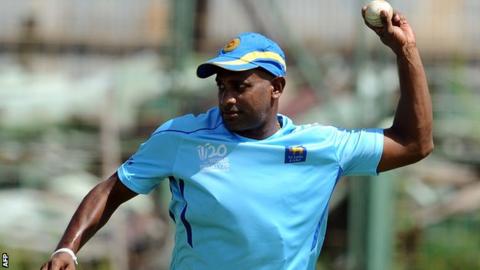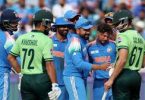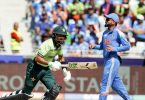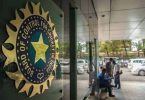Legendary former Sri Lanka player Sanath Jayasuriya has been banned for cricket for two years after admitting two breaches of the International Cricket Council’s anti-corruption code.
The 49-year-old, who was charged in October, admitted failing to co-operate with an investigation and “concealing, tampering with or destroying evidence”.
It is part of a wider investigation into corruption in Sri Lankan cricket.
Jayasuriya, who retired in 2012, is a former chairman of selectors.
“This conviction under the code demonstrates the importance of participants in cricket co-operating with investigations,” said Alex Marshall, general manager of the International Cricket Council’s (ICC) anti-corruption unit.
“Compelling participants to co-operate under the code is a vital weapon in our efforts to rid our sport of corruptors. These rules are essential to maintain the integrity of our sport.”
Jayasuriya was player of the tournament when Sri Lanka won the World Cup in 1996 and he scored 21 centuries and took 323 wickets in 445 one-day internationals.
He also averaged 40.07 runs in 110 Test matches.
The former government minister retired from international cricket in 2011, but continued playing Twenty20 matches until 2012.
After being charged, Jayasuriya had said he acted with “integrity,” adding that the charges “do not contain allegations pertaining to match-fixing, pitch-fixing or any other similar corrupt activity”.
Why was Jayasuriya charged?
In September 2017, Marshall asked Jayasuriya to hand over any mobile phones after being “satisfied” they might contain information that could help with the wider investigation.
Jayasuriya told investigators he had two phones and handed them over.
The next day he recalled he had two other phones which had been “lost” after they fell from his pocket “in a grassy area somewhere in Colombo”.
He then later admitted one of those phones was in fact deliberately “trashed” when he was under stress – however he did not know that the number had rung when investigators tried to call it.
Jayasuriya then admitted his driver had recovered the SIM card from the destroyed phone and it was placed in another phone.
He said he had continued to monitor the phone for text messages although he did not use it for calls. However he let his driver use it at weekends, which explained why it had rung when investigators tried it.
His lawyer told investigators: “This is only one mistake he has done. Whether it’s a mistake or a lie, or being untruth or violation, you will have to decide.”
ICC amnesty brings success:
In January, the ICC held an unprecedented 15-day amnesty as part of its investigation into corruption in Sri Lanka.
Failure to report an approach, incident or information can result in a ban from cricket of up to five years, but those who came forward during the amnesty with information on corrupt conduct, which they had previously failed to report, would not be charged.
The ICC said 11 players and “other participants” came forward with new information.
“I am very grateful to those who participated in the amnesty and, as a result of the information shared, we now have a much clearer picture of the situation in Sri Lanka and our investigations are continuing,” added Marshall.
After being charged, Jayasuriya released a statement saying the charges didn’t have anything to do with match-fixing, pitch-fixing or any corrupt activity. However, the 49-year-old has now admitted to have made a breach, following which he accepted the quantum of the punishment.






